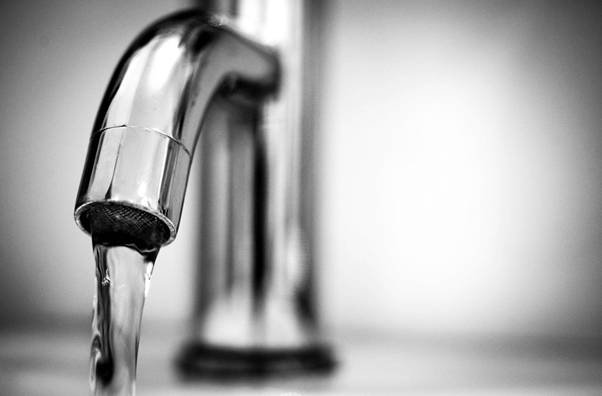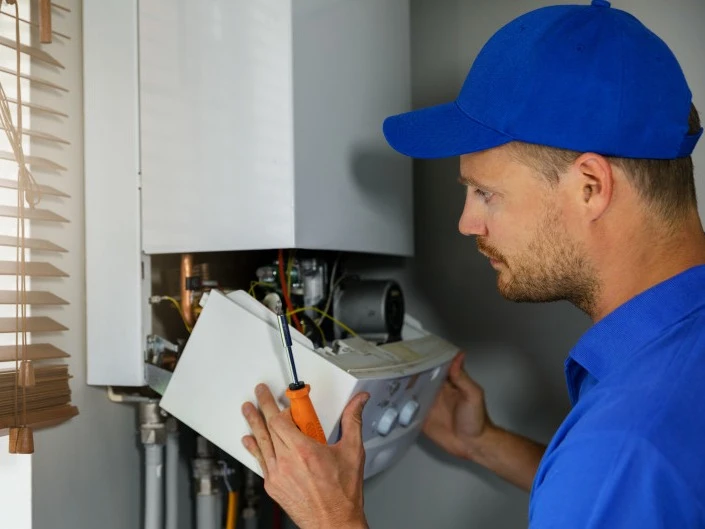As the cost of living rises, it’s important to do all we can to make life easier for ourselves in the long run. Little wonder that homeowners are looking to the future for technology that can make life cheaper and easier today.
Smart home devices, water softeners, even ultra-efficient new boilers and solar panels are in extremely high demand at the moment, due to the consumer desire to reduce monthly bills and outgoings.
Whilst it can certainly save us money in the long term, smart new household tech can’t prevent every costly plumbing ‘surprise’.
In order to prevent excessive plumbing bills, broken appliances, and an unexpectedly flooded kitchen - we’ve put together a helpful list explaining how to keep your plumbing in tip-top condition.
1. Be mindful of what goes down the drain
Certain cooking products, such as fats and oils, are quick to cause build up in drains - resulting in blockages and distasteful smells in your pipework. If you do pour oil or fat down the sink, you’ll want to clear it out as soon as possible.
Unfortunately, fats and oils can be difficult to remove from dishes and glassware. One way to stop them from clogging drains is to pour boiling water down the drain to help flush them out before they solidify.
Another way to prevent blockages is by regularly cleaning your drain. But before you go adding chemical drain cleaner to the shopping list…

2. Avoid chemical drain cleaners
Convenient and relatively inexpensive store-bought chemical drain cleaners may seem like a quick and easy way to prevent blocked drains, but don’t be fooled – these cleaners aren’t just dissolving drain blockages, they’re corroding your pipes too.
In addition to ruining your pipework, chemical drain cleaners wreak havoc on the environment.
Blocked pipes are certainly a costly issue if not addressed – but even a blocked pipe is better than a pipe with a crack, split, or hole in it.
Fortunately, there’s a near-infinite list of readily available ingredients that can be combined to make a strong, pipe-friendly drain cleaner. A combination of baking soda and vinegar can be used monthly to keep your drains in top condition.
3. Get your boiler serviced regularly
By getting your boiler serviced at least annually, you’re not only keeping yourself and your family safe - you’re also ensuring that your boiler is running as efficiently as possible.
You may think that skipping a service or two can’t hurt - but in all actuality, your boiler will become less efficient, consume far more energy, and catastrophic failure will become far more likely.
Summer is generally considered the best time to get your boiler serviced, as heating demand is lower - meaning a qualified professional can find and fix any faults before the winter weather comes.
Annual boiler servicing is one of the most effective things you can do to prolong the life of your boiler, ensure a safe household, and save money in the long term.

4. Keep an eye out for possible leaks
You may think leaks are easy to detect – a dripping tap, a wet sink cupboard, water slowly emanating from the washing machine – but not all leaks are so easy to detect.
Not only can they add hundreds to your water bill, but hidden leaks can also be the beginning of even greater plumbing catastrophes. A leak is far cheaper to repair than a collapsed plumbing system or a property flood.
In order to prevent this, make a habit of checking your pipes, taps, and other drains for hidden or silent leaks. What may only take a few minutes each month could end up saving hundreds of pounds in repair bills.
5. Watch the water pressure
Being observant of your water pressure is another easy task that may end up saving your bacon (and your bank balance) in the long run.
Lowered water pressure often stems from sediment build-up in the piping system. High water pressure may be caused by a faulty boiler or defective pressure valves.
Water pressure emergencies can almost always be prevented by regular inspection and due-diligence.
6. Insulate pipes where possible
As winter draws close, it pays to be mindful of your pipes.
Winter weather can cause water to freeze inside pipes, disrupting the water supply and potentially causing expensive damage once they thaw out.
Even cheap workarounds such as covering exposed pipes with thermal duct tape can prevent costly damage.
Opening the cupboard under your sink when the heating is on is another cheap way to help protect your pipes, as the incoming warm air travels along the pipework – preventing them from freezing in sub-zero temperatures.
It goes without saying, but the ‘prevention mindset’ will always trump the ‘repair-it-when-it-finally-breaks mindset’ in terms of both cost, and peace of mind.
Even cheap, minimal-effort prevention techniques such as these can go a long way towards protecting your plumbing and preventing any devastating repair bills.
Other articles

Should You Lower Your Boiler Temperature?
18 Oct 2022 ・ 6 mins

The Many Benefits of 'Green Plumbing'
22 Aug 2022 ・ 7 mins

A homeowners’ guide to central heating systems
22 Mar 2022 ・ 9 mins



